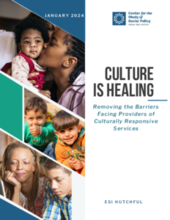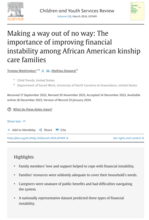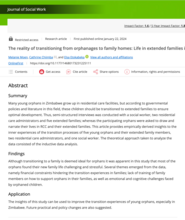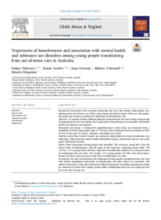Displaying 151 - 160 of 14141
Ensuring child and family well-being requires a radically different, anti-racist response of supports that center the voices of diverse children and families of color, are dignified and strengths-based, and that are offered in spaces they trust. As this brief highlights, community-based organizations across the U.S. are striving to answer that call despite numerous barriers. This brief lifts up the voices of those community providers, with the goal of highlighting and addressing the barriers that stand in the way of all families having the support they need.
This webinar explored the role of the Catholic Church in responding to children who are migrating alone or who are at risk of or have been separated from their families in the context of migration.
During this webinar, participants will explore the role of the Catholic Church in responding to children who are migrating alone or who are at risk of or have been separated from their families in the context of migration. How does Catholic social teaching inform faith communities’ responses to unaccompanied and separated children in the context of migration? How do Catholic principles and practices interact with government policies and public perceptions related to immigration?
Are you working for a residential care organization that wants to move toward providing family care for children? The 2024 Moving Toward Family Solutions (MTFS) Micro-Grant Cohort may be a good fit for you. The MTFS Cohort is a one-year program developed to thoughtfully explore and prepare for the process of moving from residential care toward family-based care for children.
This study examined African American families who are providing informal kinship care in the U.S. with the aim of developing a nuanced understanding of the financial characteristics, challenges, and coping strategies of these families.
An alarming connection exists between residential care facilities, such as orphanages and children’s homes, and human trafficking. Orphanage trafficking occurs when children from vulnerable families are actively recruited into residential care for profit or other forms of exploitation within the orphanage. Often a child finder is hired by an orphanage to go out and recruit children through deception or coercion of family members.
Este Conjunto de Herramientas está compuesto de las herramientas enumeradas a continuación, que pueden ser leídas de manera independiente o conjunta.
Many young orphans in Zimbabwe grow up in residential care facilities, but according to governmental policies and literature in this field, these children should be transitioned to extended families to ensure optimal development. This article provides empirically derived insights to the inner experiences of the transition processes of five young orphans and their extended family members, two residential care administrators, and one social worker.
The aim of this study was to examine whether different subtypes of homelessness risk exist among young people transitioning from care in Australia and whether these trajectories of homelessness are associated with mental health and substance use disorders.
This longitudinal study uses a causal effect model to examine, through decomposition, the relationship between care environment and HIV risk factors in orphaned and separated adolescents and youths (OSAY) in Uasin Gishu County, Kenya; considering resilience, social, peer, or family support, volunteering, or having one’s material needs met as potential mediators. The authors analysed survey responses from 1105 OSAY age 10–26 living in Charitable Children’s Institutions (CCI) (orphanages) and family-based care settings (FBS).






